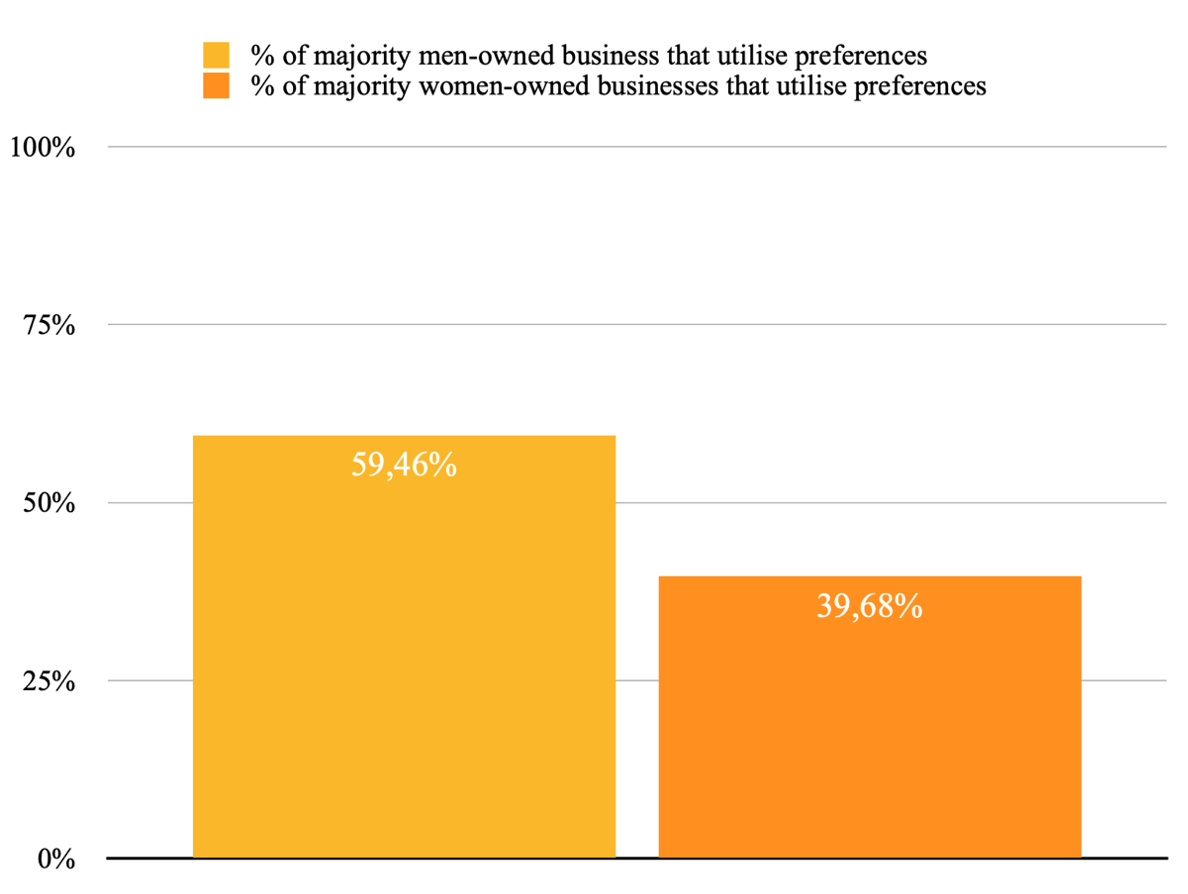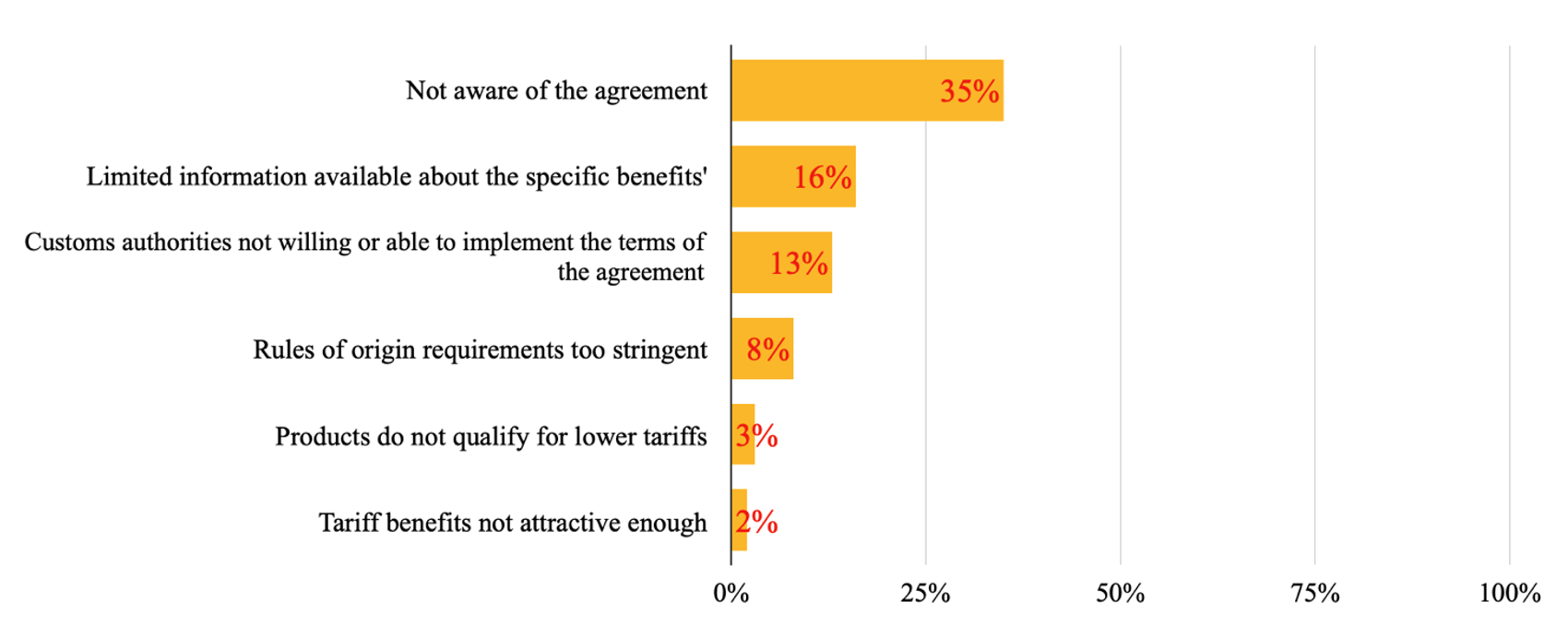Blog
The Gender Dimension of Tariff Preferences Utilisation

Tariff preference utilisation rates indicate the extent to which businesses or entities take advantage of tariff preferences granted under trade agreements or preferential trade arrangements. High utilisation rates indicate successful compliance and the ability to benefit from duty-saving opportunities. On the other hand, low utilisation rates suggest that various factors hinder firms from fully utilising preferential agreements.
The results of a recent survey conducted by tralac[1] in Tanzania, Uganda, Zimbabwe, Rwanda, Kenya, and Burundi showed a significant difference in the utilization of tariff preferences between sampled women-led Micro, Small and Medium Enterprises (MSMEs) and majority male-owned businesses. The pooled responses collected from these six countries revealed that only 40% of majority women-owned businesses reported utilizing the tariff preferences provided under African Free Trade Agreements, while 60% of majority male-owned businesses reported doing so. This finding suggests a significant disparity in the barriers to utilisation of tariff preferences between businesses owned by women and those owned by men.
Figure 1: Share of Majority Women and Male-Led Businesses Utilising Tariff Preferences

The survey responses provided by women-led firms shed light on which barriers are most prevalent. Among these, the most frequently identified challenge, reported by 51% of women-led businesses, is a lack of knowledge regarding the existence of trade agreements. The second most commonly cited constraint, reported by 38% of women-led businesses, is limited information about the specific benefits associated with such agreements. Figure 2, constructed using the survey data, represents the prevalence of various reasons stated by women-led firms for not utilising tariff preferences.
Figure 2: Reasons provided by Women-Led Firms for not utilising tariff preferences

These findings align with the conclusions of a recent UNDP report which highlights that across the continent, women’s limited access to trade-related information more broadly is a major obstacle to taking advantage of new trade opportunities. This includes awareness of trade agreements but also information on customs procedures, rules of origin, quality standards and packaging requirements[2]. This limited access to information translates to a lack of awareness of the AfCFTA and its benefits; the survey informing the report found that only half of women-owned MSMEs were only slightly aware or informed about the AfCFTA[3].
The measure of the success of African trade agreements, including the African Continental Free Trade Area’s (AfCFTA), lies in the transformation of its opportunities into equitable and tangible benefits for men and women. The survey’s results serve as evidence supporting the necessity of a concerted continental effort to address the systemic challenges experienced by women traders in many African countries. The AfCFTA’s Protocol on Women and Youth which is currently under negotiation has the potential to be a pivotal component of this effort.
[1] tralac. 2023. Gendered Value Chains in Africa Survey. (unpublished raw data).
[2] UNDP. 2022. Amplifying the voices of women across Africa on how to make the AfCFTA Protocol on Women and Youth in Trade work for development. https://www.undp.org/sites/g/files/zskgke326/files/2022-09/The%20heartbeat%20of%20trade_final%20new_converted_v4.pdf
[3] Ibid.
About the Author(s)
Leave a comment
The Trade Law Centre (tralac) encourages relevant, topic-related discussion and intelligent debate. By posting comments on our website, you’ll be contributing to ongoing conversations about important trade-related issues for African countries. Before submitting your comment, please take note of our comments policy.
Read more...





